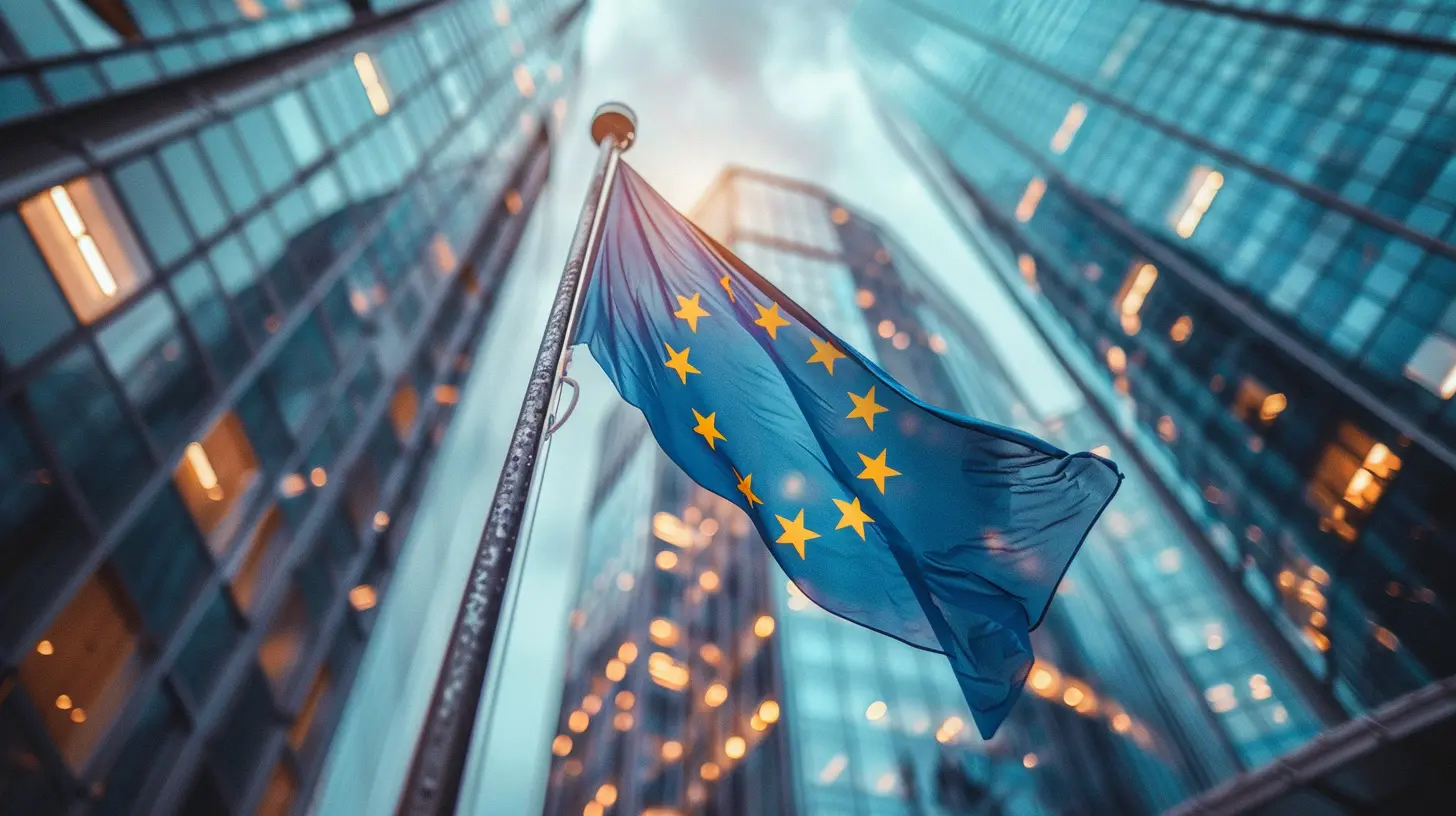The Growing Importance of ESG in Financial Regulation
14 November 2025
Let’s talk about the big green elephant in the financial room — ESG.
Nope, it’s not a new cryptocurrency (though honestly, would you be surprised if it was?). ESG stands for Environmental, Social, and Governance. Sounds fancy, doesn’t it? But really, it’s just finance’s way of saying, “Hey, maybe we should do less planet-destroying and more planet-saving.”
This isn’t just another acronym tossed around in corporate boardrooms. ESG is blowing up, and it’s not just because Greta Thunberg gave everyone a guilt trip. It’s because governments, regulators, investors — heck, even your grandma’s mutual fund manager — are realizing that how a company treats the Earth, people, and its own board matters. Not just morally (which duh, it does) but financially.
So buckle up. We're diving into why ESG is no longer just a “nice-to-have” in the financial world — it's now a “you-better-have-it-or-else.”
📈 What Is ESG, Really?
Let’s break it down. ESG stands for:- Environmental: How a company impacts the planet. Think carbon emissions, energy efficiency, water usage, and how many turtles it's accidentally strangling with plastic.
- Social: How a company treats people. Employees, customers, communities — you name it. Are they paying fair wages? Are they supporting diversity and inclusion? Or are they still stuck in the 1950s?
- Governance: How the corporate sausage is made. Is leadership ethical? Transparent? Are they cooking the books or playing it straight?
In short: ESG is like giving companies a moral report card. And spoiler alert — not everyone’s getting A’s.
🤓 Why Should Finance Folks Care About ESG?
Okay, maybe you’re thinking, “Cool, that’s great for tree-huggers and activists, but what does ESG have to do with cold, hard cash?”Well friend, that’s where things get interesting.
ESG is now risk management on steroids. Ignoring ESG in 2024 is like ignoring the check engine light in your car. Sure, you can pretend it’s not there — but eventually, your financial engine's gonna blow.
Let’s Put It This Way:
- A company ignoring climate change might get hit with lawsuits or government fines.- A company with toxic workplace culture might lose talent faster than you can say “LinkedIn job alert.”
- A company with shady accounting might tank overnight (hi there, Enron).
So yeah, investors, regulators, and even insurance companies are tuning in and turning up the heat. ESG is no longer just about reputation. It’s about risk and retention.
📜 Financial Regulation Gets an ESG Makeover
Financial regulators used to care about numbers. Period. Profit margins, debt loads, dividends. End of story.Now? They’re asking deeper questions:
- “How is this company addressing climate risk?”
- “Do their diversity targets actually mean something?”
- "Is management being transparent about supply chain practices?"
Regulators are like that nosy neighbor who suddenly started composting and wants to know what’s in your trash can. Annoying? Maybe. Necessary? Absolutely.
🏦 Major Players Getting Involved
Let’s name-drop, shall we?1. SEC (U.S. Securities and Exchange Commission)
The SEC has been sniffing around ESG disclosures like a bloodhound. They’re pushing for standardized ESG reporting, meaning companies can’t just slap on a vague “we love the Earth” paragraph in their annual report and call it a day.2. EU Taxonomy and SFDR
The European Union is already five steps ahead. The Sustainable Finance Disclosure Regulation (SFDR) and the EU Taxonomy are like the ESG police of Europe. They make sure asset managers and companies actually walk the talk.3. Task Force on Climate-related Financial Disclosures (TCFD)
This group is all about climate-related risks being baked into financial reporting. Because ignoring sea level rise when you invest in beachfront property is… well, dumb.
💡 ESG = Innovation Opportunity
Here’s the fun twist no one saw coming: ESG isn’t just about dodging disasters. It’s also sparking innovation.Companies are getting creative. They’re inventing biodegradable everything, building solar-powered factories, and even using AI to root out bias in hiring. ESG has become the cool kid at the finance party.
🤑 Investors Are Eating It Up
Think ESG is just a passing trend? Tell that to the trillions — yes, trillions with a “T” — flowing into ESG investments. Millennials and Gen Z investors (aka the avocado toast generation) are demanding accountability with their dollars.They don’t want to make money while the Earth burns. They want to support companies that do good and do well.
😬 Greenwashing: The Dark Side of ESG
Of course, with all the ESG hype comes the not-so-glamorous side: greenwashing.That’s when companies pretend to be sustainable — you know, like the fast fashion brand launching a “green” line while their workers earn peanuts and the factories spew smoke like a Victorian chimney.
Financial regulators are NOT having it. The crackdown is real. Misleading ESG claims can now lead to fines, shareholder lawsuits, and massive PR disasters. So if a company is fibbing about its ESG stats? It might just end up on a Wall Street naughty list.
📊 Standardization: The ESG Alphabet Soup
One of the biggest beefs in the ESG world? Inconsistency.Right now, it’s like the Wild West. There’s a zillion frameworks and rating agencies (SASB, GRI, CDP, anyone?) and they don’t always agree on what “good” looks like. It’s frustrating — like trying to compare apples to oranges to pineapples wearing suits.
But! Regulators and the industry are slowly (so painfully slowly) moving toward standardized reporting. This means clearer benchmarks, less confusion, and fewer loopholes. Hallelujah.
🌍 ESG Goes Global
ESG isn't just a Western-world obsession. Far from it. Countries like Japan, Australia, and even China are building their own ESG regulatory frameworks. Why? Because global supply chains don’t care where a law was passed. What happens in Shanghai can still haunt a CEO in Seattle.Multinational Companies = Multinational Responsibilities
If you’re doing business globally (and let’s face it, most big firms are), you’ve gotta juggle ESG requirements from around the world. It’s like playing ESG whack-a-mole — but with spreadsheets and compliance checklists.🙋♂️ What This Means for YOU (Yes, You)
Whether you’re a day trader, a CFO, or someone who just downloaded a budgeting app once and never opened it again — ESG matters.- For investors, it means accounting for sustainability and ethics in risk assessments.
- For companies, it means changing how they operate — and report.
- For regulators, it means writing more ESG-related rules than their coffee budgets can handle.
- For you and me, it means knowing what the heck we’re supporting with our money.
Your retirement fund? ESG impacts it. The stocks in your portfolio? ESG matters there too. Even your favorite oat milk startup? Yep — ESG might just determine if they stay afloat in the big leagues.
🧠 TL;DR: ESG Isn’t a Fad — It’s the Future
Let’s not sugarcoat it. ESG isn’t some fluffy “extra credit” project. It’s now integral to how financial systems work. We’re talking about full-blown integration into regulation that impacts public companies, asset managers, and banks alike.Finance is finally realizing that doing the right thing and doing the profitable thing aren’t mutually exclusive. In fact, they’re often the same thing.
The ESG train has left the station and it’s picking up speed. So, whether you’re clinging to the caboose or riding up front with the conductor, it’s time to get on board.
🍿 Final Thoughts: ESG Is Here to Stay (So Let’s Do It Right)
Let’s be real — ESG isn’t perfect. The system needs better standards, less greenwashing, more transparency, and fewer buzzwords. But it’s evolving. Fast.What started as a feel-good movement is now a regulatory reality. Regulators are stepping in. Investors are demanding better data. Companies are paying attention.
So, no — you can’t ignore ESG anymore. But that’s a good thing.
Because whether you’re in it for the planet, the people, or just the profits — ESG’s got something for everyone.
all images in this post were generated using AI tools
Category:
Financial RegulationAuthor:

Yasmin McGee
Discussion
rate this article
1 comments
Wynter Gibson
Great article! ESG is becoming crucial in financial regulation, reflecting a shift in investor priorities. Embracing these principles isn't just ethical; it's essential for sustainable business practices moving forward.
November 18, 2025 at 4:46 AM

Yasmin McGee
Thank you for your insightful comment! I completely agree—ESG principles are indeed vital for sustainable business practices and are reshaping the financial landscape.


